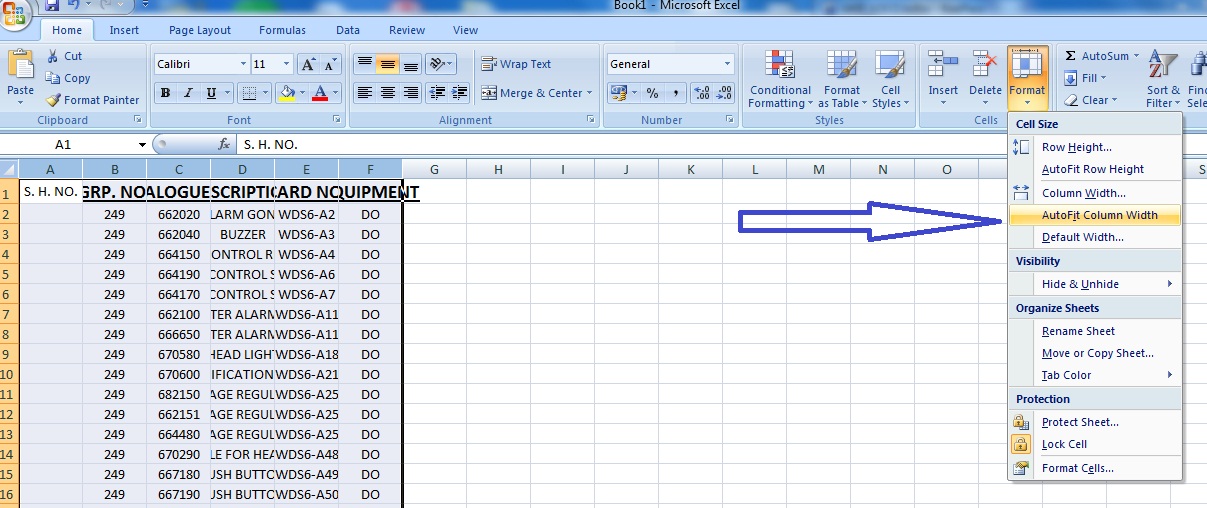Conquer Excel: Mastering Column Width Perfection
Ever stared at a spreadsheet, frustrated by those pesky truncated words and overflowing cells? It's a common Excel woe, but fear not, because achieving perfectly sized columns is easier than you think. Whether you're dealing with lengthy product descriptions, complex formulas, or simply want a clean, professional look, mastering Excel's column width adjustment features is essential for any spreadsheet guru.
Let's dive into the world of Excel column widths and explore how to make your data visually appealing and easily digestible. From simple auto-fit solutions to precise manual adjustments, we'll cover everything you need to know to present your data effectively.
Think of a perfectly formatted Excel sheet as a well-tailored suit. Just as the right fit enhances a garment, the proper column width elevates the readability and overall impact of your spreadsheet. No more squinting at abbreviated text or scrolling horizontally to decipher hidden information. With just a few clicks, you can transform your spreadsheet from chaotic to chic.
While the concept of adjusting column width might seem basic, it plays a crucial role in data presentation. A well-structured spreadsheet allows for quick comprehension and analysis, ultimately saving time and reducing errors. Imagine trying to analyze sales figures when half the product names are cut off – it's a recipe for frustration and potential misinterpretations.
Before the age of digital spreadsheets, manually adjusting column widths was a tedious task involving rulers and painstaking calculations. Thankfully, Excel has streamlined this process, providing various methods to achieve optimal column sizing, whether you prefer automation or precise manual control. This allows us to focus on the data itself, not the formatting struggles.
The most straightforward method to adjust column width in Excel is the auto-fit feature. This automatically resizes the column to accommodate the longest text string within that column. Double-clicking the boundary between two column headers will instantly adjust the width of the column to the left. Alternatively, you can select the column, go to the "Home" tab, and click "AutoFit Column Width" in the "Cells" group.
Manual adjustment offers more precise control. Simply drag the boundary between column headers to resize. You can also specify a precise width numerically within the "Format" options in the "Cells" group on the "Home" tab.
Benefits of correctly sized columns include improved readability, efficient data analysis, and a professional appearance. Consider a financial report with cramped columns - deciphering the numbers becomes a challenge, increasing the risk of misinterpretation. With correctly sized columns, the information is clear and readily accessible, facilitating quicker decision-making.
Step-by-step guide for auto-fitting: Select the column you want to resize. Double-click the right border of the column header or go to the "Home" tab, click "Format" in the "Cells" group, and choose "AutoFit Column Width."
Advantages and Disadvantages of Auto-Fitting
| Advantages | Disadvantages |
|---|---|
| Quick and Easy | May be too wide for shorter text entries |
| Ensures all text is visible | Can be affected by cell formatting |
Best Practices: 1. Use auto-fit as a starting point and then make manual adjustments for fine-tuning. 2. Consider the font and font size when adjusting column widths. 3. Maintain consistency in column widths across related data sets. 4. Avoid excessively wide columns that may hinder readability. 5. Test your spreadsheet's appearance at different zoom levels to ensure optimal display.
FAQ: 1. How do I auto-fit multiple columns at once? (Select the columns, then double-click a boundary or use the AutoFit option.) 2. Can I auto-fit row height as well? (Yes, the process is similar to column width adjustment.)
Tips and Tricks: Use the "Wrap Text" feature to handle long text strings within a column without drastically increasing the column width.
In conclusion, mastering Excel's column width adjustment features is essential for creating clear, professional, and easy-to-read spreadsheets. From auto-fitting for quick adjustments to manual resizing for precise control, Excel provides the tools you need to present your data effectively. By implementing the best practices outlined above, you can enhance readability, improve data analysis, and create visually appealing spreadsheets that leave a lasting impression. So, ditch those truncated words and embrace the power of perfectly sized columns – your spreadsheets will thank you. Taking the time to optimize your spreadsheet's layout not only enhances its visual appeal but also increases its functionality, making your data analysis more efficient and accurate. Invest the few minutes it takes to master these techniques, and you'll reap the rewards of a streamlined and impactful spreadsheet experience.
Conquer your dmv renewal test ace those questions
Embrace the tranquility discovering sherwin williams silver mist
Unleashing creativity a deep dive into tiktok live for pc














